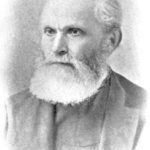Last Sunday, our church just finished a series on the book of Ephesians. It’s been a joy the past few months to share the pulpit with fellow pastors and friends as we enjoyed an all-you-can-eat buffet in this powerful, practical letter.
To prepare for the series, I translated the passage from the Greek text and read a few commentaries. I found Benjamin Merkle’s EGGNT volume a helpful, even guide through the Greek text, Simon Austen’s Teaching Ephesians (Proclamation Trust) very practical in preparing to preach it, and Langham International’s African Bible Commentary and South Asian Bible Commentary good windows into some cross-cultural implications of the book.
For preachers, bible study leaders, keen readers, here’s a couple of exegetical thoughts in no particular order:
- It’s well-known that Paul’s opening words in Eph 1:3-14 form one super-long sentence in the Greek (one scholar famously called it a “monstrosity”). But what you do see Paul do is think in threes: he says “the praise… of His glory…” (v6, 12, 14) three times, he praises all three members of the Godhead. So one way to approach the passage is to consider it in three parts: the Father’s adoption (1:3-6), the Son’s forgiveness (1:7-12), and the Spirit’s assurance (1:13-14).
- The phrase εν Χριστώ (in Christ) or its equivalent (e.g. in Him, in the Beloved) is the key phrase and appears constantly through the book. Paul’s first and foremost priority is that his readers, whatever their ethnicity and background, find their identity first and foremost in union with Christ. That is what should then shape us to live our lives as a new, distinct community.
- The salvation Paul has in mind is not an individual, personal, me-and-Jesus affair, but a shared reality. In the Greek, Paul is constantly using the συν- prefix in front of verbs (equivalent in English to saying co-llaborate, or co-operate), so that we are “made alive together” (2:5), “raised together” (2:6) and “seated together” with Him (2:7), fellow citizens (2:19), joined together (2:21), built together (2:22). The mystery now revealed in chapter 3 is that we are “fellow heirs, fellow members, and sharers together of the Messiah’s promises through the gospel” (3:6). As a result we’re to live in light of the fact that we’re “joined together” and “held together” (4:16), rather than “partner together” with the corrupt deeds of darkness (5:11). Becoming a Christian isn’t just a personal, private affair. God’s eternal plan is for us to be joined to a new community that loves and serves – together.
- While there’s a big difference between the 1st and 2nd half of the letter (e.g. there’s 1 imperative in Greek in Ephesians 1-3 vs. 40 in Eph 4-6), it’s crucial to connect both halves as you journey through the letter. For example, the way to understand “praying in the Spirit” (6:18) is to see what the Spirit does for the believer in Eph 1:13, 14, 2:18, 3:16 and so on. The kind of good works God has prepared in advance for his people in Eph 2:10 is fleshed out in chapters 4 onwards.
- I’m hoping to look further into this and other nerdy issues, but it seems like more early manuscripts begin the passage on household instructions at 5:22 “Wives…” than at 5:21 “Submit to one another…”. And whenever a manuscript has a break at 5:21, there’s also a break at 5:22. The choice to put a break at 5:21 and not 5:22 has only emerged within the past 50 years. The specific instructions to household members do flow out of the earlier instructions of mutual submission as part of the Spirit-filled life (5:18), but I think it’s still best to preach 5:21 as part of the preceding passage, not the one after.
- Paul uses an interesting word choice when instructing fathers not to “provoke your children to anger” (6:4) – he calls them to ἐκτρέφετε them in the training and instruction of the Lord. It’s commonly translated as “bring them up”, but the idea behind the word is “nourish” – just like how in Eph 5:29, a person feeds (ἐκτρέφει – same word) and cares for his own body. It really struck me as a dad that my main role as a parent is to “nourish” my kids in the same way as I would look after my own body.
- Don’t forget Tychicus! He’s most likely an Ephesian (he’s named with Trophimus in Acts 20:3, who’s called “the Ephesian” in Acts 21:29), and without him Paul the Roman prisoner could never have shared his thoughts beyond his prison walls / house. I need to keep remembering that ministry is a team sport, not a solo pursuit. God’s plan is for us to support each other to keep trusting Jesus as our first love.
At our church, we looked at the book across three congregations over 13 talks. You can hear our English service sermons on Soundcloud, Spotify and elsewhere (just search “PCBC English”).




